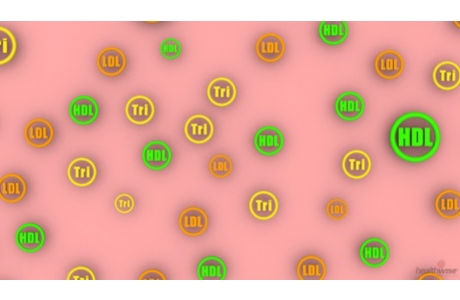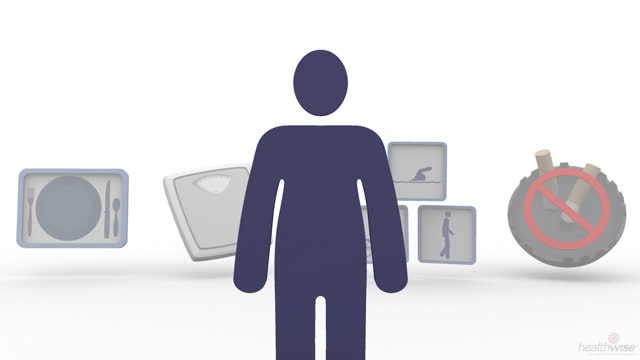Condition Basics
What is high cholesterol?
High cholesterol means that you have too much cholesterol in your blood. Cholesterol is a type of fat (lipid). It's needed for many body functions. It's made by your body. It also comes from food you eat (meat and dairy products).
Having high cholesterol can lead to the buildup of fatty deposits called plaque (say "plak") in artery walls. This can increase your risk of coronary artery disease (CAD), heart attack, and stroke.
What causes it?
Doctors can't usually say for sure what may have caused high cholesterol. But many things can make it more likely. These things include eating too much food that contains saturated fat and having family who have or had high cholesterol.
What are the symptoms?
High cholesterol doesn't cause symptoms in most people. It's usually found during a blood test that measures cholesterol levels.
How is it diagnosed?
High cholesterol is diagnosed with a blood test. The test measures the level of total cholesterol plus the level of different types of cholesterol and fats in your blood. These include LDL, HDL, and triglycerides. High cholesterol levels don't cause symptoms. A blood test is the only way to know your cholesterol levels.
How is high cholesterol treated?
The two main types of treatment for high cholesterol are a heart-healthy lifestyle and medicines. The goal of treatment is to reduce your risk of having a heart attack or stroke.
Your doctor can help you know your risk. The doctor can also help you weigh the benefits and risks of your treatment options.
Heart-healthy lifestyle
A heart-healthy lifestyle includes:
- Eating heart-healthy foods.
- Staying at a weight that's healthy for you. Talk to your doctor if you need help losing weight.
- Being active on most days of the week.
- Not smoking or vaping.
- Managing other health problems.
Medicines
Some people decide to take medicines called statins along with having a healthy lifestyle. Statins can reduce the risk of having a heart attack or stroke. Sometimes other medicines are also used.
Plant products and supplements
Talk with your doctor before using plant products or supplements to lower cholesterol. Some plant products, such as fiber (psyllium) or red yeast rice, may help lower cholesterol. Research has not proven that these products lower the risk of heart attack and stroke. Taking some plant products or supplements together with medicines can cause problems.










